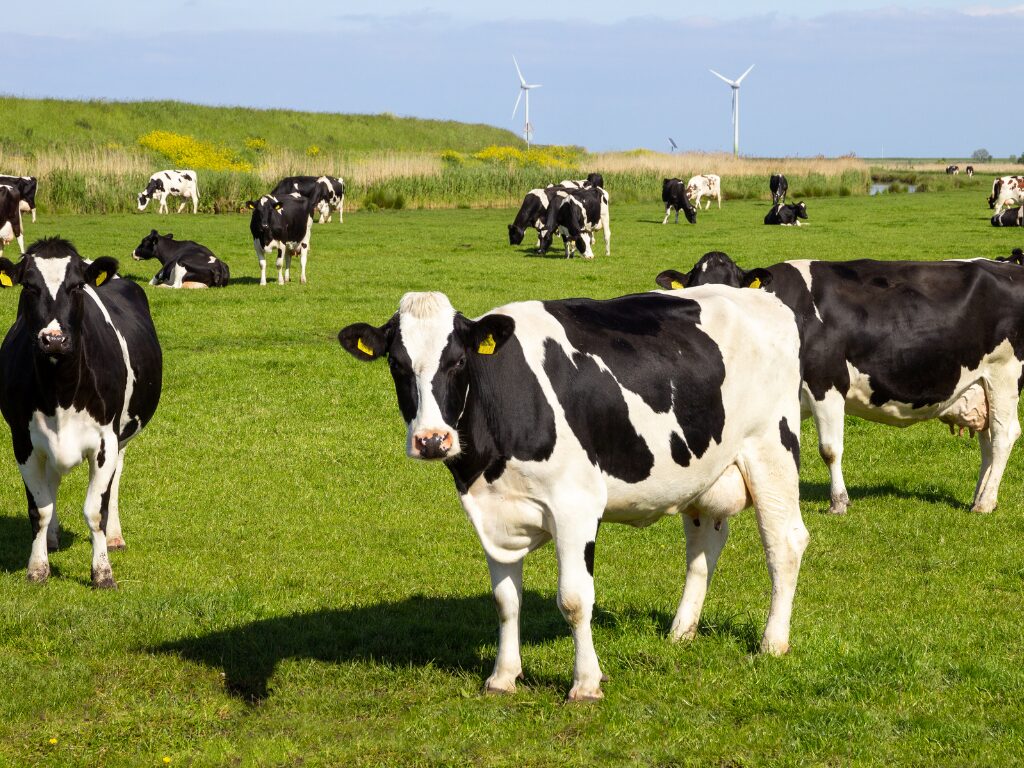4 Mins Read
As Arturo Jose Garcia and Allie Molinaro argue, cultivated meat can be a boon for smallholder farmers, not to mention reduce global dependence on antibiotics, decrease the need for dangerous slaughterhouses, and empower a future of delicious, sustainably grown food.
In December 2020, a Singaporean restaurant grabbed worldwide headlines by serving the first commercially available cultivated meat. This was also the first time a country approved the sale of cultivated meat, which many hoped would signify a shift in the way we raise and consume animal-sourced food. Still, its acceptance on diners’ plates, in restaurant critics’ write-ups, and the flood of new funding to other cultivated meat companies meant for the first time the just transition of food was seen as an immediate possibility.
Fast forward to 2024, it is clear that food systems change is no longer an option, but a necessity. That sentiment echoed through the United Nations Climate Change Conference (COP28) in Dubai, which wrapped up in mid-December. However, it is also clear there is no silver bullet that will transform our food systems. What we need instead are different but equally important levers that complement one another that, on their own, can’t achieve much, but together they are game-changing.
Cultivated meat, one of those necessary levers, promises a more sustainable, healthier, compassionate, and environmentally friendlier way to produce the meat we love to eat. Imagine real meat, with a fraction of the impact on the environment and animals. Don’t we owe it to ourselves, the animals, and the planet to pull on this lever and give cultivated meat a shot?
Unfortunately, there are already efforts to cap the cultivated meat promise by the knees both internationally and here in the United States, likely spearheaded by farming industry groups. But what these groups fail to realize is that cultivated meat is not meant to preclude farming- it was originally meant to operate in tandem with small farmers. In the Netherlands, local farmers grow corn, barley, and wheat that are used to make feed or the cell cultures, and ranchers keep a small herd of cows on pasture who are used for an occasional harmless biopsy. Keeping fewer animals without the need to slaughter them can be a win for smallholder farmers, public health, and worker safety. But cultivated meat bans exacerbate the problems that this promising innovation has the potential to mitigate and solve.
In a decentralized model, cultivated meat production can open new market opportunities for small farmers who are currently struggling to compete with mega agribusiness. As it stands, only four highly industrialized companies control each of the beef, pork, and chicken markets. If small farmers who are being outcompeted turn to partner with cultivated meat, they can create a novel value-added market for themselves catered toward more ethically minded consumers. This also removes the headache of finding a slaughterhouse with processing capacity and may improve farmers’ mental well-being as they can allow their animals to live out their natural lifespans, collecting biopsies from the same animal for years until she passes naturally, while still feeding the same amount (or more) people than with traditional cycles of fattening and slaughtering.
In addition, keeping fewer animals and raising them on pasture instead of in crowded and unsanitary Concentrated Animal Feeding Operations (CAFOs) and feedlots reduces the need for routine antibiotics. Currently, industrial agriculture accounts for over two-thirds of the use of medically important antibiotics, which is giving rise to antibiotic resistance. Antibiotic-resistant bacteria kill over 1 million people per year, including 35,000 Americans. However, antibiotic-resistant bacteria are on track to kill 10 million people per year by 2050 without intervention. To put that into perspective, just under seven million people have died from Covid-19 since 2020. In a post-antibiotic world, none of us are safe. Routine procedures such as appendectomies and commonly treatable illnesses such as pneumonia, ear and dental infections, and urinary tract infections become deadly.
Finally, eliminating the need for slaughter eliminates the need for notoriously problematic slaughterhouses. Slaughter and processing plants are some of the most dangerous places to work, with the highest amputation and serious injury rates in the U.S. workforce. One worker recently fell into a machine with corrosive chemicals and suffered severe burns. Occupational Safety and Health Administration (OSHA) had previously cited the plant with two repeat and six serious violations. Even without injuries, the conditions are terrible. Workers have reported wearing diapers because they were not allowed to go to the bathroom. In 2020, they were a superspreading site for COVID-19 as workers were forced to come in without proper personal protective equipment (PPE). And in recent months, several U.S. processing plants have come under fire for using child labor.
We need to shift away from industrial animal agriculture, continue to uplift small family farms and regenerative land stewardship, promote diets that are in line with planetary boundaries, and foster the development of alternative proteins and cultivated meat. Food systems solutions must be multifaceted, drawing from a range of techniques and strategies simultaneously. A system that is not one size fits all but is beneficial for all. Cultivated meat is just one piece of the puzzle in our food systems and a just transition. And with the global population heading towards 10 billion and global meat consumption projected to increase by 50% or more by 2050, it’s all hands on deck.






